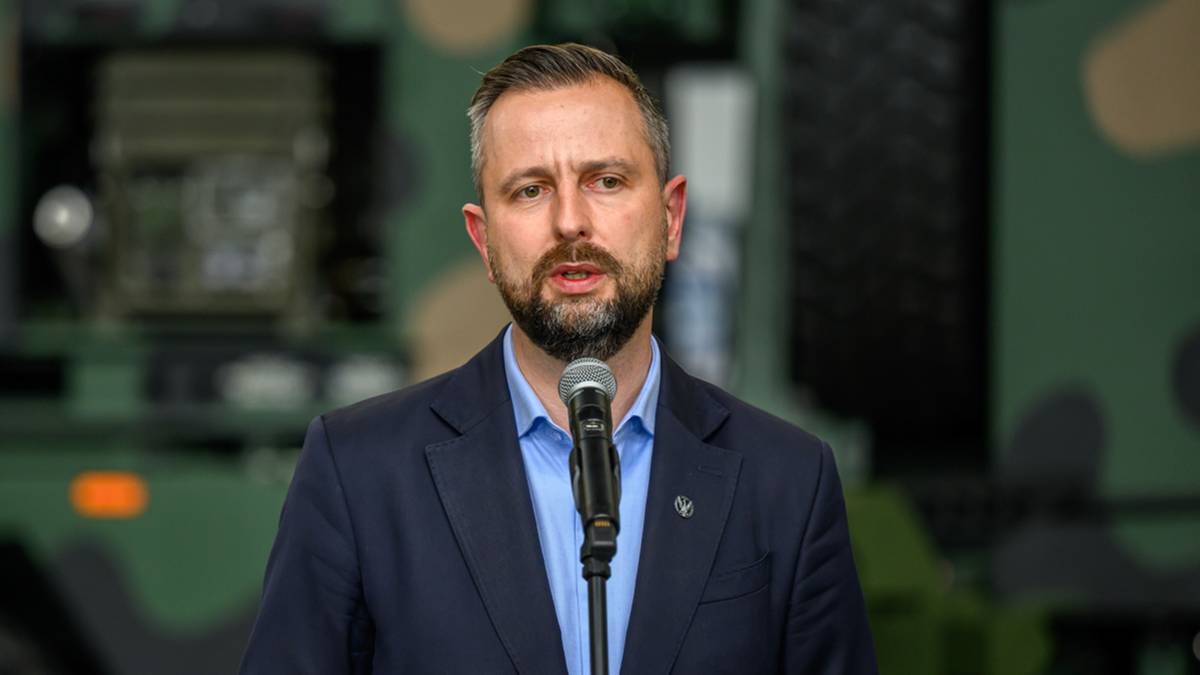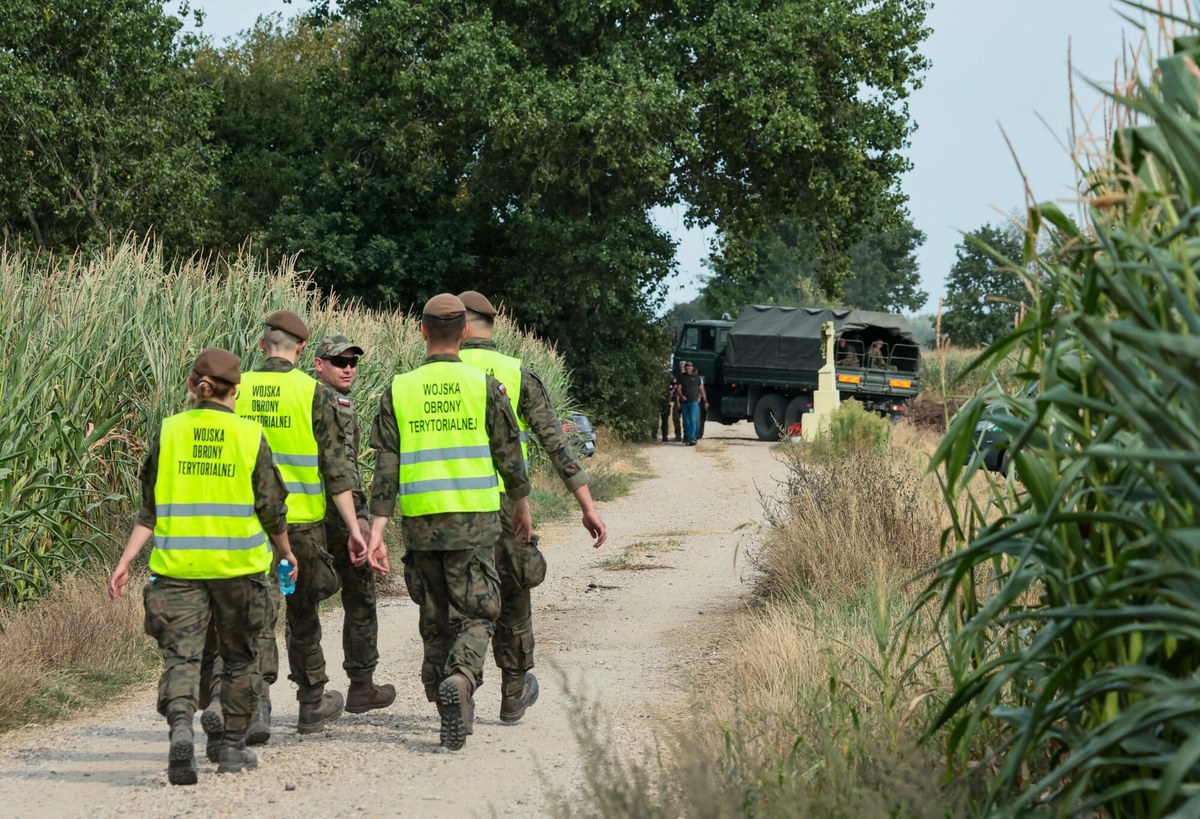The war in Ukraine, its impact on planet safety architecture and actions to halt Kremlin's aggressive policy dominated the agenda of the sixth edition of the Defence24 Days conference. For 20 years, Russia has imposed the rules of the game. possibly it is time to regain the initiative? – asked Piotr Małecki, president of the Board of Defence24, at the beginning of the debate.
Almost 300 panelists from all over the planet started present in Warsaw a two-day Defence24 Days conference. A gathering of politicians, military commanders and analysts organized by the manufacture publishing home is simply a place of exchange and discussion mainly about how to halt Russia in the implementation of its imperial aspirations. Among the panelists are Deputy Prime Minister Władysław Kosiniak-Kamysz, Minister Jacek Siewara, the highest commanders of the Polish Army with General Wiesław Kukuła at the head and representatives of the defence manufacture from Poland and abroad.
The conference was opened by Piotr Małecki, president of the Board of Defence24. In his opinion, the first war with Russia, which was in the area of information, diplomacy and cyberspace, The West lost due to the fact that he didn't even realize it was going on. “For over 2 decades the planet has been fed Russian propaganda about its democratisation and peaceful development. Most Western political elites have not awakened an attack on Georgia, nor seizure of part of Ukraine in 2014 said Małecki. – Words and warnings from Poland and another east countries NATO flanks had little weight than invitations to the Gazprom lodge for Champions League matches or salaries in rubles for erstwhile but influential European politicians," he added. As he pointed out, Russia has been imposing the rules of the game for 2 decades and the West has only been trying to adapt to them. – Isn’t it advanced time to take the initiative?” he rhetorically ended his speech Małecki.
Film: Dominika Celińska, Ewa Korsak, Maciej Bąkowski / ArmouredTV
“Poland needs to cooperate on its state's right,” said Deputy Prime Minister Władysław Kosiniak-Kamysz in his inaugural speech. The reason of the state is the safety of the homeland. This is not possible without cooperation," he added. This cooperation was outlined by the head of the MON both internally and internationally. On the national stage, on safety issues, a consensus is needed beyond political contention, both in Parliament and in relations on the MON line – the administration of the president of Poland. It is besides crucial to cooperate with the arms industry, due to the fact that its productivity will depend mostly on the military's combat capabilities and the success of specified initiatives as Operation Szpej, i.e. a program of jumping saturation of troops with modern individual equipment of soldiers. The Minister besides recalled the pilot-in-command “Education with the Army” action as an example of building public awareness and raising its resilience. As part of this program, about 3000 schools will teach delegated soldiers lessons on which children and young people will learn, among others, evacuation procedures and first aid or alarm.
Minister Jacek Siewara, head of the National safety Bureau, recalled the celebrated saying that war is simply a game of numbers. In his opinion, the “time of peace” stands on the side of the West, which has more inhabitants, higher GDP, greater production capacity and technological possible than Russia. “But there is no will,” said Siewara. As an example, he gave a plan for the transportation of 1 million pieces of artillery by the European countries. “We have no reason to be proud, due to the fact that ammunition was expected to hit Ukraine by March, and it is already May, and the plan has inactive not been implemented”, said the head of BBN.
As part of the essential adaptation to the changed safety situation, Siewiera recalled the presidential draft Act on State authorities' activities in the event of an external threat to State securityWhich, on May 2, went to the Sejm. The head of BBN pointed out that the current command strategy was designed at a very different time erstwhile the possible of a full-scale war in Europe seemed a improbable threat. In his opinion, the proposals made by the president are designed to adapt military structures to the current challenges and to make effective processes for the creation of top-level documents, on the basis of which the state defence strategy will operate, both in the military and economical and social layers.
Awakening Europe
After the closing of the beginning ceremony, Defence24 Days heads of MON and BBN took part in the first panel discussion conference. In the debate entitled “Europe in the era of war. Scaring and defence” was besides attended by Radosław Sikorski, Minister of abroad Affairs.
Deputy Prime Minister Kosiniak-Kamysz stressed the function of Poland in the “awakening” of Europe, which is simply a essential condition to rebuild its defence strategy and to supply our part of the planet with adequate effective deterrent potential. “Europe wakes up after years of lethargy. After a period of misunderstanding of the first months of the war, the head of the MON stated. As an example, he gave a change in France's policy, which the president initiated an global discussion on the anticipation of sending NATO troops to Ukraine, and a decision by the United Kingdom to rise its yearly defence spending to 2.5% of GDP. Another proof of appropriate perception of the situation is the accession to NATO Finland and Sweden, which importantly changed the safety situation in the Baltic Sea basin, de facto making it an interior NATO basin.
However, according to Deputy Prime Minister Kosiniak-Kamisha, there is inactive a deficiency of a shift of the arms manufacture to full mobilisation. “Over the last decades, Europe has not only disarmed itself, but besides deindustrialised itself in the field of arms production,” said Radosław Sikorski. According to the head of Polish diplomacy, Ukraine, fighting Russia, bought Europe time for the essential changes in the economy, but after 2 years of war it is increasingly legitimate to ask whether the West has utilized this time properly. “That is why we support the creation of a position in the European Union of the Defence Commissioner with a separate budget,” said the Minister of Defence. As he observed, if decisions are not taken immediately to rebuild the real European defence system, all another investment expenditure – for roads, schools or hospitals – will not make sense. “The defence manufacture must be at the heart of European economical policy and the main nonsubjective of its investment,” added Kosiniak-Kamish. According to the head of the MON, for example, funds from the National Recovery Plan could be utilized for this purpose.
Jacek Siewara agreed that strengthening cooperation within the European Union is simply a prerequisite for the recovery of the European deterrent system. But as he pointed out, changes in reasoning about this are besides slow in the Union. – A classical example of how the Union takes on solving problems and how it misses real needs is the task European Sky Shield – stated the head of BBN. It is simply a program to build an global multilayer anti-aircraft and rocket defense. According to Jack Siewiera, the subject was stuck at the phase of the discussion, who is to produce weapons that are at the heart of it and how much it will make. As he stressed, this, unfortunately, is besides an example of the fact that, even in the face of the real threat, the members of the European Union are not able to emergence above the peculiar interests and besides the proof that no lessons have been drawn from the past, where we find both affirmative and negative examples of European cooperation. To this first group, the head of the BBN ranked the fighter Eurofighter Typhoon. The aircraft, which is now equipped with respective European armies, has been developed and is produced as part of an global European consortium. – And what about the situation with the Euro-Flock? – he asked a minute later. “We have been waiting for 2 decades for any effects,” he added.
The Head of the BBN proposed a change in reasoning about European defence cooperation. “If the problem is who produces weapons, let it be produced in countries that already have specified capabilities and then be transferred to countries that are active in the implementation of the military part of defence plans,” said Siewara. The Head of the BBN did not hide his scepticism about the crucial increase in the number of common European armed forces emerging in the public space. “If we cannot make the forces and means to implement already existing defence plans, adding further tasks will face many challenges,” said Siewara.



![Nie spodobało się, iż nazwałam się imamką [Rozmowa z Seyran Ateş]](https://cdn.oko.press/cdn-cgi/image/trim=398;0;424;0,width=1200,quality=75/https://cdn.oko.press/2025/08/AFP__20170728__R207J__v1__HighRes__GermanyFranceReligionIslamMosque.jpg)